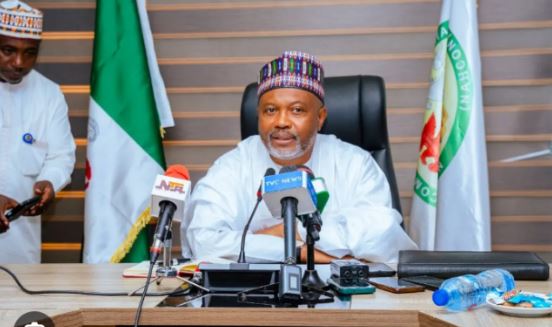EFCC Grills NAHCON Chairman Over N90bn Hajj Subsidy
Posted by Samuel on Wed 31st Jul, 2024 - tori.ng
On Tuesday, the Economic and Financial Crimes Commission questioned Jalal Arabi, the Chairman of the National Hajj Commission of Nigeria, regarding alleged mismanagement of funds related to the 2024 Hajj exercise, among other issues.
The PUNCH reports that Arabi arrived at the EFCC’s headquarters in Jabi, Abuja at about 10 am and was grilled for hours by EFCC investigators.
An insider, who preferred anonymity because of the sensitive nature of the matter, informed our correspondent that Arabi’s questioning was prompted by petitions filed against him.
The source said, “He was invited to the commission’s office to explain how his commission spent the N90bn subsidy provided for the 2024 hajj exercise.
“His invitation was a result of the petitions against the chairman and his management team to our office over the alleged mismanagement of funds in the commission, and the 2024 Hajj exercise, among others.
“The allegations he was asked to respond to date back to 2021 and not just the issue of the just concluded exercise.”
The source added that “Three directors from the commission have also been invited to explain what they know about the issue. They include the Director of Procurement, Director of Finance and the Director of the Programmes.”
When asked if Arabi would be detained or allowed to go, the source said the anti-graft agency might not detain him.
“He may not be detained but he will be asked to come back if needed at the end of the day; but presently, he is still being interrogated.
”The CEO has been invited, he has honoured the invitation, he will go back, there is no reason to keep him in custody when he is already complying.
”The new EFCC is operating in accordance with international best practices. You can see that most of the people invited are always allowed to go if they comply.”
When contacted, the spokesman for the EFCC, Dele Oyewale, said he would get back to our correspondent on the matter.
He had, however, yet to do so as of the time of filing this report.
At a post-Hajj press conference in Abuja on Monday, the NAHCON chairman had said the N90bn Hajj subsidy was transparently utilised.
“Each pilgrim was supported with N1,637,369.87 from the N90bn except for pilgrims under the Hajj Savings Scheme who enjoyed more.
“Hence, all registered intending pilgrims, except those on HSS, were required to pay a balance of N1,918,094.87 since the N90bn was not sufficient to make up for the balance,” Arabi said.
In June, the Niger State Governor, Mohammed Bago, called on the National Assembly to probe the N90bn released by the Federal Government to subsidise the 2024 Hajj pilgrimage to Saudi Arabia.
The governor described NAHCON’s performance as a failure, saying, “The N90bn subsidy paid by the Federal government for the Hajj operation, with some states, including Niger, paying about billions of naira; there is need for the National Assembly to probe the N90bn the Federal Government released for the 2024 Hajj. It is ridiculous that pilgrims were given only $400 to take care of themselves for about 40 days despite the payment of N8m by each pilgrim.
“The N90bn would have made more impact if shared with states. The money is enough to run the Universal Basic Education budget for four years.”
On June 11, the House of Representatives , resolved to set up an ad hoc committee to investigate the NAHCON over the conduct of the 2024 Hajj pilgrimage.
The resolution of the House followed the adoption of a motion titled, “Urgent need to investigate the National Hajj Commission and the Federal Capital Territory Administration Muslim Pilgrims Welfare Board, their agents and sub-agents over shoddy arrangement and treatment of Nigerian pilgrims in the 2024 Hajj exercise.”
The motion was moved by the lawmaker representing Baruten/Kaiama Federal Constituency of Kwara State, Mr Mohammed Bio.
Describing Hajj exercise as an important obligation important in the life of every Muslims and one of the five pillars of Islam, Bio lamented that about 50, 865 Muslim pilgrims across Nigeria were under the care of NAHCON in 2024, noting that some of them were not taken care of in terms of welfare, organisation, guidance and monitoring as expected.
















































